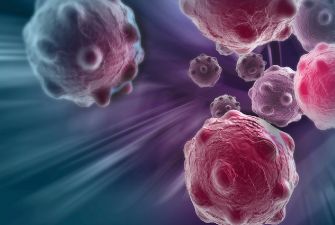18F-fluciclovine PET/CT Changes ADT Treatment Plans in Prostate Cancer Patients
 A study presented at the 22nd Society of Urologic Oncology Annual Meeting reports that the majority of patients with prostate cancer adjusted their androgen deprivation therapy (ADT) post-scan management plan after receiving a 18F-fluciclovine PET/CT scan.
A study presented at the 22nd Society of Urologic Oncology Annual Meeting reports that the majority of patients with prostate cancer adjusted their androgen deprivation therapy (ADT) post-scan management plan after receiving a 18F-fluciclovine PET/CT scan.
A total of 93 out of 146 patients (64%) had a change in management plan following their scans, which also caused 55 patients (59%) to no longer have ADT included in their care plan. Only 25% of patients who initially had a plan to receive ADT as a monotherapy still had a plan for ADT monotherapy post 18F-fluciclovine PET/CT.
A secondary analysis of two treatment alteration studies, LOCATE (NCT02680041) and FALCON (NCT02680041), found that out of the 317 patients with biochemical recurrence (BCR) enrolled in these studies, 146 had ADT, either as a monotherapy or in combination with another treatment modality, included in their post-scan plan.
Sixty patients in the study were initially planned to receive ADT as a monotherapy, while 86 were initially going to receive ADT with another modality. Overall, lesions were detected in 85 patients (58%) who were planning to receive ADT.
Findings revealed that 25 patients (17%) had positivity that was limited to the prostate/prostate bed, 21 patients (14%) had 18F fluciclovine–positive pelvic nodes, and 39 patients (27%) had positive detection beyond the prostate/bed and pelvic nodes.
Patients with the most disseminated disease (extra-pelvic involvement,12/30; 40%) were the patients who were likely to have a post-scan plan for ADT monotherapy. In contrast, patients with a negative scan were most likely to have a modified post-scan plan which aborted ADT (14/54; 26%). Among those whose post-scan plan aborted ADT, local disease was common.